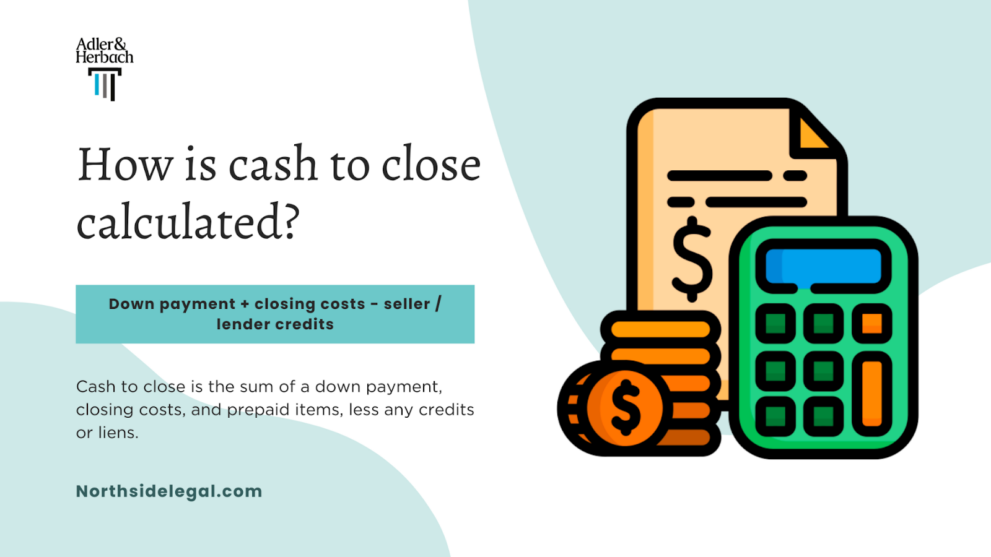If you’re in the process of buying a home and applying for mortgage financing, one of the key figures your lender will provide in the loan estimate is the total estimated “cash to close” amount you as the buyer need to bring to the closing transaction. But how exactly is a buyer’s cash to close requirement calculated by lenders? What goes into determining this total?
How is cash to close calculated?
Calculating the cash to close for home buyers involves considering several factors. This includes the down payment, closing costs (such as lender and third-party fees), prepaid items like taxes and insurance, any credits received, and the amount of buyers earnest money deposit. These components affect the total amount of money needed at closing.

There are a few main components that go into calculating a home buyer’s cash to close amount:
1. Down payment
The down payment requirement is primarily based on the mortgage loan amount and the minimum down payment percentage guidelines for the specific loan program the buyer is using (FHA, conventional, VA, etc). For example, if purchasing a $300K home with a $240K loan amount at a 20% down payment, the down payment component would be $60K.
2. Closing costs
These costs include all the various lender fees and third-party fees charged to process the mortgage loan and close on the real estate transaction. Origination charges, appraisal fees, title insurance premiums, attorney fees, and more all factor in. Closing costs are generally in the range of 2-5% of the total loan amount, influenced by credit scores and local market rates for various items.
3. Prepaid items
The upfront prepayment of property taxes, homeowner’s insurance premiums, and potentially mortgage insurance for the first year will be required at closing. The lender estimates these costs.
4. Credits
Any closing cost credits or concessions that the buyer will receive, either from the property seller or directly from the lender as incentives, serve to reduce the buyer’s total cash outlay. Negotiated seller credits, lender credits, down payment assistance, etc can significantly lower the buyer’s own direct costs at closing if applicable.
Learn more about
How lenders calculate estimated cash to close?
To compile the full estimated cash to close figure, the mortgage lender will:
- Estimate third party and lender closing costs based on the buyer’s property location, credit scores, loan amount, selected loan program, and additional factors.
- Calculate the required down payment based on the home’s purchase price and minimum down payment percentage for the loan program chosen by the buyer (FHA, conventional, USDA, VA loan types).
- Add in estimated prepaid amounts for property taxes, homeowner’s insurance premiums, and any mortgage insurance premiums as applicable.
- Subtract out the estimated dollar amounts of any projected seller credits or lender credits the buyer is eligible for.
- Compile these items into a preliminary cash to close estimate on the initial Loan Estimate disclosure form issued within 3 days of the mortgage application submission.
As the loan progresses through underwriting, the lender will re-confirm and fine tune each of the figures to provide a more detailed and accurate cash to close total on the Closing Disclosure document issued at least 3 days before the final closing date.
Having an early estimate from the lender allows buyers to better plan and gradually save up over months in advance for their upcoming down payment, closing costs, and other cash needs at closing.
For further reading
Asking the loan officer questions and requesting clarification or adjustments along the way ensures you as the buyer remain fully informed on what goes into the total cash to close calculation.

